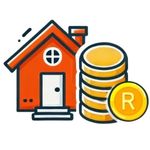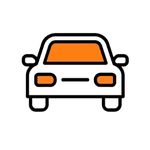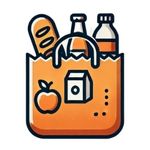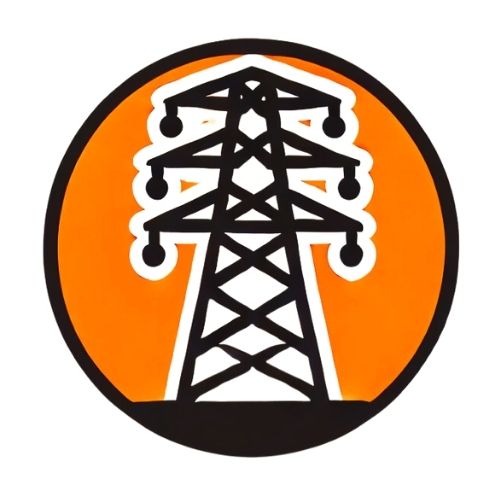
The cost of living in South Africa depends on your location, lifestyle, and income. In 2025, rising prices for housing, groceries, transport, and utilities have made budgeting more necessary than ever. If you’re keeping an eye on household costs or thinking about moving, understanding average expenses in key categories can help you plan more effectively.
Key Takeaways
- Rising Costs Across Essentials: South Africans are facing higher living expenses in 2025 due to increased prices in housing, food, utilities, healthcare, and transport. These cost pressures affect households across all income levels and locations.
- Access Remains Unequal: Deep structural inequalities continue to influence access to housing, education, and healthcare. Public services are often affordable but overburdened, while private alternatives offer quality at significantly higher costs.
- Budgeting Is Now Vital: Managing expenses through bulk shopping, prepaid services, and affordable leisure options is increasingly important. Adopting smart spending habits can help offset the impact of inflation and currency volatility.
About Arcadia Finance
Arcadia Finance makes borrowing simple. No fees, 19 vetted lenders, and a smooth online process designed for South African consumers.
The State Of South Africa’s Economy
South Africa’s economic situation in 2025 reflects both opportunities and persistent difficulties. The country possesses significant mineral wealth, including gold, platinum, and other high-value resources that continue to underpin its export sector. Its banking and financial services industry is well-established, and serves as an access point for international investors operating across the African continent.
Despite these strengths, South Africa continues to grapple with serious structural challenges. The unemployment rate remains critically high, while economic inequality remains one of the most pressing issues, with large sections of the population excluded from economic participation. The energy sector remains fragile, with regular load-shedding disrupting both households and industry. Political tensions, coupled with repeated corruption scandals, have further weakened investor confidence and reduced economic momentum.
The World Bank identifies South Africa as the country with the highest wealth inequality globally. Disparities in poverty levels are strongly influenced by racial, gender, and educational factors. Black South Africans and individuals without access to formal education experience the highest levels of poverty, highlighting the deep socioeconomic divisions that persist across the country.

Factors The Are Causing The Rising Cost Of Living In South Africa
The rise in the cost of living across South Africa is being influenced by several key developments affecting households and businesses alike.
Higher Utility Expenses
Electricity tariffs have been climbing steadily, largely due to ongoing infrastructure problems and supply constraints. This has resulted in increased monthly utility bills for residential consumers and commercial operations.
Inflation In Food Prices
The cost of basic grocery items has gone up considerably. This can be traced to persistent supply chain bottlenecks, increased transport and fuel expenses, and unfavourable weather patterns that have disrupted farming output.
Increased Transportation Charges
With fuel prices continuing to climb, the cost of travel has risen for both individuals and companies. This includes higher fares for public transport and greater fuel costs for private vehicle owners, which also push up the prices of goods that rely on road transport.
Declining Value Of The Rand
The unstable exchange rate has made imported goods and services more expensive. As the Rand weakens against major global currencies, businesses face higher input costs, which are then passed on to consumers.
What Costs the Most In South Africa?

Housing
Owning property in South Africa is unaffordable for many, making rental housing the more common option. Buying a home requires a large deposit and bank approval for a bond, which is often difficult for average income earners. Many apartment blocks and complexes charge monthly levies for services like security and maintenance, with costs depending on the location and amenities.
In cities like Cape Town and Johannesburg, one-bedroom units rent for around R7 000 to R12 000 per month, while three-bedroom properties can cost R10 000 to R30 000.
Home loans are regulated by the National Credit Act, which advises that repayments not exceed 30% of gross monthly income, further limiting access to homeownership.
Renting is less regulated, with terms largely set by landlords or rental agents, resulting in flexible but inconsistent pricing and conditions.

Transport
Public transport infrastructure in South Africa remains underdeveloped, with limited and often unreliable train and bus networks in urban areas. Many locations, particularly townships and informal settlements, are not adequately serviced by these modes of transport.
Transport time is a significant concern. Owing to longstanding inequality dating back to Apartheid, large numbers of people travel long distances from townships to workplaces in the suburbs and city centres.
Minibus taxis form the backbone of commuter transport for millions, but passengers frequently need to use several taxis per journey. This daily commute can be time-consuming and, in many cases, unsafe or inconsistent in terms of schedule and service quality.
Private vehicle ownership is common for those who can afford it. However, motorists must factor in fuel costs, which are upwards of R20.36 per litre, along with additional expenses such as monthly car instalments, vehicle insurance, servicing, and general wear and tear.

Food
South Africans have faced substantial food price inflation over the past few years, with average grocery costs rising by approximately 50% between 2020 and 2024.
Several causes have contributed to the increase in food prices. These include higher fuel prices, electricity shortages due to loadshedding, logistical disruptions, and seasonal spikes around holidays.
Typical current prices for everyday food items are as follows:
- Bread (700g loaf): around R15 to R25
- Milk (1 litre): approximately R15 to R20
- Eggs (dozen): between R30 and R40
- Chicken (1 kg): ranges from R60 to R90
- Potatoes (1 kg): generally R10 to R20
These costs can vary depending on the region and the retailer, but the upward trend in food prices has placed pressure on household budgets across income levels.
Crunching numbers on your weekly shop but wondering what everyone else pays? Dive into our deep-dive on the Average grocery cost per month in South Africa to see how your basket stacks up against national norms and uncover tips to trim your supermarket bill.

Healthcare Costs
South Africa has a dual healthcare system, with the public sector serving the majority of the population at relatively low fees, such as R60 for a clinic consultation. However, state-run facilities often struggle with long queues and limited resources. The government’s National Health Insurance (NHI) scheme aims to make healthcare more accessible, but full implementation is still years away.
In contrast, private healthcare provides faster and more comprehensive services, though at a significantly higher cost. Medical aid schemes like Discovery, Bonitas, and Momentum charge monthly premiums ranging from around R1 378 to R9 853 depending on the plan. For those without medical aid, visiting a GP can cost R400 to R700, while specialist consultations and hospital stays are even more expensive.

Education And Childcare Expenses
Public schools in South Africa are generally more affordable, with fees influenced by the school’s quintile. Lower-fee schools may charge around R300 per month, while top-performing public schools can cost R1 500 or more. Private school fees range between R3 000 and R10 000 monthly, excluding additional costs for uniforms, books, transport, and activities. University tuition varies depending on the institution and programme, with University of Cape Town (UCT) and University of Witwatersrand (Wits) charging between R40 000 and R80 000 annually. University of South Africa (UNISA), a distance learning option, is more affordable at approximately R25 000 per year. While National Student Financial Aid Scheme (NSFAS) provides financial assistance to qualifying students, other living costs such as accommodation, food, and transport still need to be covered separately.

Communication And Internet
Most South Africans use prepaid mobile services, with entry-level data bundles starting at R30 for 1GB and larger packages ranging from R100 to R300, depending on the network. MTN, Vodacom, Telkom, and Cell C offer different bundle options, but coverage and pricing vary by location. Home internet via fibre-optic cable (fibre) typically costs between R500 and R1 000 per month depending on speed and provider, while Long-Term Evolution (LTE) packages are priced from R300 to R700 for areas without fibre access. Providers like Rain, Afrihost, and Vox offer flexible plans, though users should consider coverage and data limitations when choosing a service.

Utilities And Municipal Rates
Monthly electricity and water bills for a standard household generally range from R1 200 to R2 500, with charges influenced by usage, municipality, and whether the property uses a prepaid meter. Loadshedding continues to impact electricity availability, prompting some households to explore alternative power sources. Municipal rates, which include refuse removal and basic services, depend on property value and location. These typically range from R400 to over R1 500 per month, forming a significant part of fixed living expenses in urban areas.

Clothing And Personal Care
Clothing prices differ significantly depending on the retail outlet. Standard mall stores charge between R300 and R800 for items like jeans or shoes, while factory outlets and second-hand shops offer lower prices, with some garments available for under R200. For grooming, salon visits cost anywhere from R150 to R600 depending on the treatment and location. Essential hygiene items such as toothpaste, soap, and shampoo generally add up to R300 to R500 per person each month, while premium skincare and grooming products can push the total higher depending on brand choices.

Entertainment And Subscriptions
Streaming services remain a common source of entertainment, with Netflix, Showmax, and Spotify offering plans from R49 to R199 per month. DSTV options range from R99 for entry-level packages to over R900 for full premium access. Local entertainment such as cinema tickets usually cost between R80 and R120, with special rates available on select days. Attending live events like concerts, theatre shows, and sports games can range from R100 for general admission to R500 or more for premium seating. Community markets and free public events also provide budget-friendly leisure options across the country.
Cost of Living Breakdown in South Africa
Markets
| Item | Average (R) | Range (R) |
|---|---|---|
| Milk (regular, 1 liter) | 19.53 | 15.00–30.00 |
| Loaf of Fresh White Bread (500g) | 17.68 | 11.25–24.00 |
| Rice (white, 1kg) | 28.28 | 19.99–45.00 |
| Eggs (regular, 12) | 40.83 | 24.00–60.00 |
| Local Cheese (1kg) | 137.51 | 90.00–209.99 |
| Chicken Fillets (1kg) | 82.33 | 50.00–120.00 |
| Beef Round (1kg) | 120.60 | 89.00–170.00 |
| Apples (1kg) | 27.55 | 15.00–39.00 |
| Banana (1kg) | 25.68 | 15.00–45.00 |
| Oranges (1kg) | 26.50 | 11.94–60.00 |
| Tomato (1kg) | 27.20 | 15.00–36.00 |
| Potato (1kg) | 22.00 | 10.00–40.00 |
| Onion (1kg) | 23.32 | 14.00–35.00 |
| Lettuce (1 head) | 18.99 | 12.00–25.00 |
| Water (1.5 liter bottle) | 17.07 | 12.00–25.00 |
| Bottle of Wine (Mid-Range) | 85.00 | 50.00–150.00 |
| Domestic Beer (0.5 liter bottle) | 24.05 | 15.00–40.00 |
| Imported Beer (0.33 liter bottle) | 30.43 | 17.99–50.00 |
| Cigarettes (20 Pack, Marlboro) | 52.00 | 45.00–65.00 |
Transportation
| Item | Average (R) | Range (R) |
|---|---|---|
| One-way Ticket (Local Transport) | 30.00 | 15.00–70.00 |
| Monthly Pass (Regular Price) | 800.00 | 460.00–1,600.00 |
| Taxi Start (Normal Tariff) | 20.00 | 15.00–40.00 |
| Taxi 1km (Normal Tariff) | 19.00 | 10.00–30.00 |
| Taxi 1hour Waiting (Normal Tariff) | 85.00 | 56.65–150.00 |
| Gasoline (1 liter) | 22.73 | 21.08–25.00 |
| Volkswagen Golf 1.4 90 KW (New Car) | 370,000.00 | 310,450.00–499,900.00 |
| Toyota Corolla Sedan 1.6l 97kW (New Car) | 424,904.54 | 360,000.00–502,600.00 |
Utilities (Monthly)
| Item | Average (R) | Range (R) |
|---|---|---|
| Basic Utilities (Electricity, Water, Garbage) for 85m² | 1,999.09 | 1,200.00–4,000.00 |
| Mobile Plan (Calls + 10GB+ Data) | 579.71 | 299.00–1,000.00 |
| Internet (60+ Mbps, Unlimited) | 735.02 | 500.00–1,000.00 |
Restaurants
| Item | Average (R) | Range (R) |
|---|---|---|
| Meal, Inexpensive Restaurant | 160.00 | 85.00–300.00 |
| Meal for 2 People, Mid-range Restaurant, Three-course | 700.00 | 480.00–1,200.00 |
| McMeal at McDonalds (or Equivalent Combo Meal) | 90.00 | 75.00–100.00 |
| Domestic Beer (0.5 liter draught) | 40.00 | 24.00–57.64 |
| Imported Beer (0.33 liter bottle) | 45.00 | 30.00–65.00 |
| Cappuccino (regular) | 35.87 | 20.00–50.00 |
| Coke/Pepsi (0.33 liter bottle) | 17.59 | 12.00–30.00 |
| Water (0.33 liter bottle) | 13.82 | 10.00–25.00 |
Sports and Leisure
| Item | Average (R) | Range (R) |
|---|---|---|
| Fitness Club (Monthly, 1 Adult) | 563.40 | 299.00–970.00 |
| Tennis Court (1 Hour, Weekend) | 170.30 | 60.00–250.00 |
| Cinema (1 Seat, International Release) | 120.00 | 85.00–200.00 |
Childcare
| Item | Average (R) | Range (R) |
|---|---|---|
| Preschool (Private, Full Day, Monthly) | 3,377.68 | 2,000.00–5,000.00 |
| International Primary School (Annual) | 78,245.77 | 35,000.00–150,000.00 |
Clothing and Shoes
| Item | Average (R) | Range (R) |
|---|---|---|
| 1 Pair of Jeans (Levi’s 501 or Similar) | 877.87 | 500.00–1,200.00 |
| 1 Summer Dress (Zara, H&M, etc.) | 548.42 | 250.00–1,000.00 |
| 1 Pair of Nike Running Shoes | 1,663.49 | 950.00–2,500.00 |
| 1 Pair of Men’s Leather Business Shoes | 1,427.91 | 799.00–2,200.00 |
Rent Per Month
| Item | Average (R) | Range (R) |
|---|---|---|
| Apartment (1 Bedroom) in City Centre | 7,935.59 | 4,500.00–15,000.00 |
| Apartment (1 Bedroom) Outside of Centre | 6,563.80 | 4,500.00–10,000.00 |
| Apartment (3 Bedrooms) in City Centre | 15,943.38 | 9,900.00–29,000.00 |
| Apartment (3 Bedrooms) Outside of Centre | 12,707.34 | 8,500.00–20,000.00 |
Buy Apartment Price
| Item | Average (R) | Range (R) |
|---|---|---|
| Price per Square Meter to Buy in City Centre | 17,999.82 | 8,000.00–36,000.00 |
| Price per Square Meter to Buy Outside Centre | 13,756.00 | 9,500.00–30,000.00 |
Salaries and Financing
| Item | Average (R) | Range (R) |
|---|---|---|
| Average Monthly Net Salary (After Tax) | 23,616.51 | – |
| Mortgage Interest Rate (%), Yearly, for 20 Years Fixed-Rate | 11.55 | 9.42–13.40 |
Curious how your take-home compares? Our guide to the Average salary in South Africa breaks down median incomes by sector and region, helping you benchmark your earnings and negotiate that next pay rise.

Money-Saving Tips For Living In South Africa
Buy Groceries From Wholesalers
Purchasing food and household items from wholesale outlets such as Makro, Food Lover’s Market, or Boxer can result in significant savings. These stores typically offer lower prices when buying in bulk, which is often more cost-effective than shopping at smaller convenience retailers.
Look Out For Restaurant Specials
Numerous restaurants and takeaway chains across the country run weekly promotional offers. Examples include half-price sushi days, discounted burger combos, or Spur’s popular Monday steak deals. Taking advantage of these promotions can reduce your monthly food spending considerably if you enjoy dining out.
Use Affordable Public Transport Options
Instead of relying on app-based services like Uber or Bolt, consider more economical alternatives such as minibus taxis or the MyCiTi bus system in Cape Town. These forms of transport offer much lower fares and are widely used by local commuters, especially in urban areas.
Change To Prepaid Electricity To Manage Costs
Prepaid electricity meters are common in South African households and allow you to control your usage more directly. By purchasing electricity units in bulk early in the month, when the rate per unit is lower, you can avoid higher costs later in the billing cycle as tariffs increase with usage.
Shop At Brand Factory Outlets
Well-known brands such as Adidas, Nike, and Levi’s operate factory shops in locations like Woodmead in Johannesburg and Access Park in Cape Town. These stores frequently offer substantial discounts, sometimes up to 70 percent, making them ideal for buying clothes and footwear at reduced prices.
Enjoy Free Or Low-Cost Outdoor Activities
While major game reserves such as Kruger National Park require entrance fees, many other natural areas remain accessible at little to no cost. Local hiking trails, public beaches, and smaller nature reserves offer a low-cost way to enjoy leisure time and appreciate the outdoors without straining your budget. The Kruger National Park does offer free entrance to South African citizens for one week every year in September.
Conclusion
The cost of living in South Africa during 2025 reflects a complex mix of economic pressure, service limitations, and structural inequality. Households are facing increased expenses in nearly every area, housing, food, transport, healthcare, and education, while incomes often remain stagnant. Although public services offer some relief, the growing demand and limited resources mean many residents must make difficult financial choices. For those navigating these challenges, understanding where costs are highest and how to manage them through budgeting, prepaid options, and cost-saving strategies is essential for maintaining financial stability.
Frequently Asked Questions
The average monthly cost for a single person in a city is between R10 000 and R15 000, depending on housing, transport, and lifestyle choices.
Public transport is affordable but often unreliable. Minibus taxis are widely used but may involve long commute times and inconsistent service.
Consulting a general practitioner typically costs R400 to R700 per visit, while specialist care and hospital stays can cost significantly more without medical aid coverage.
Utilities can be costly, especially with rising electricity tariffs. Monthly electricity and water bills generally range from R1 200 to R2 500 for a household, depending on usage and location.
Buying groceries in bulk, using prepaid electricity, choosing affordable transport options, and shopping at factory outlets can help reduce monthly expenses.
Fast, uncomplicated, and trustworthy loan comparisons
At Arcadia Finance, you can compare loan offers from multiple lenders with no obligation and free of charge. Get a clear overview of your options and choose the best deal for you.
Fill out our form today to easily compare interest rates from 19 banks and find the right loan for you.





